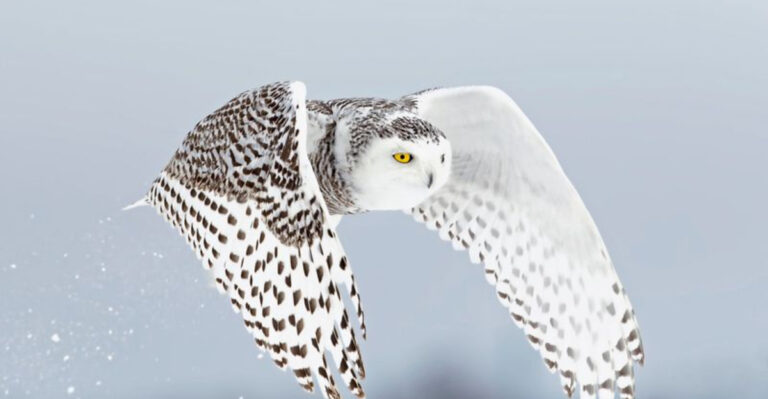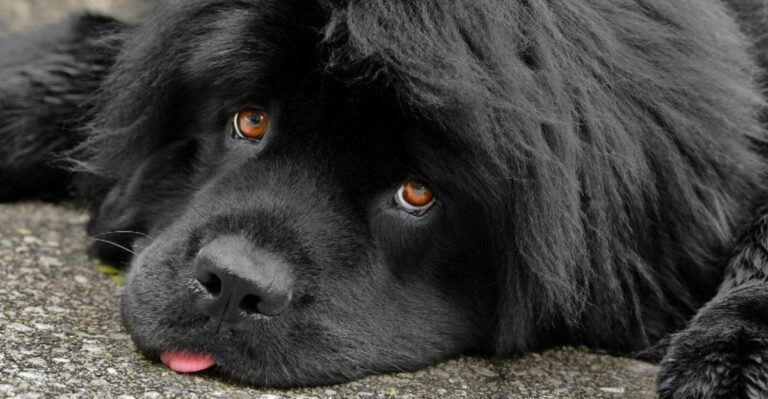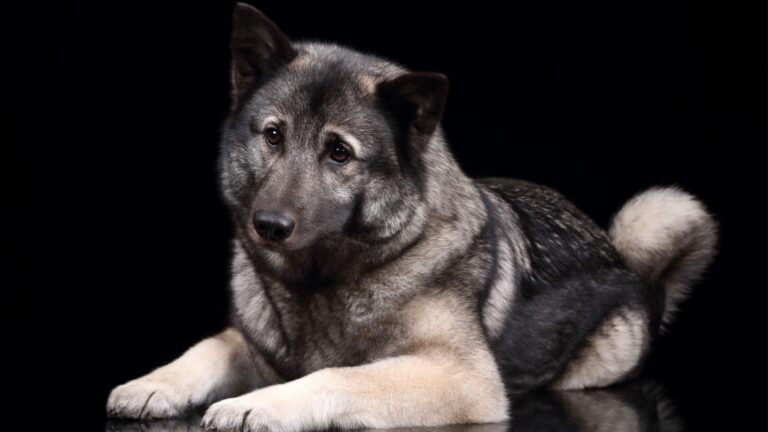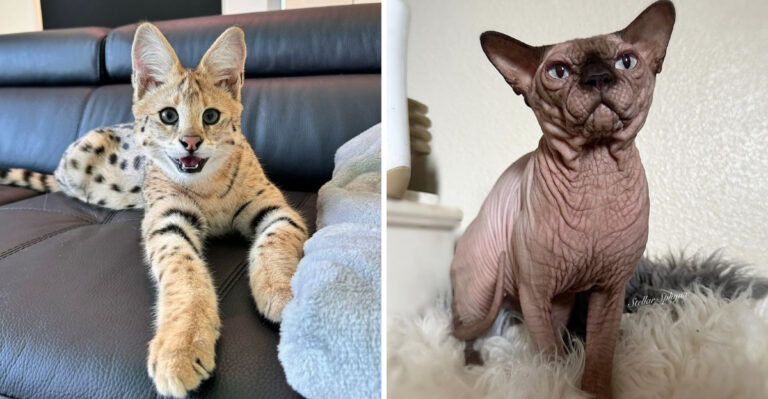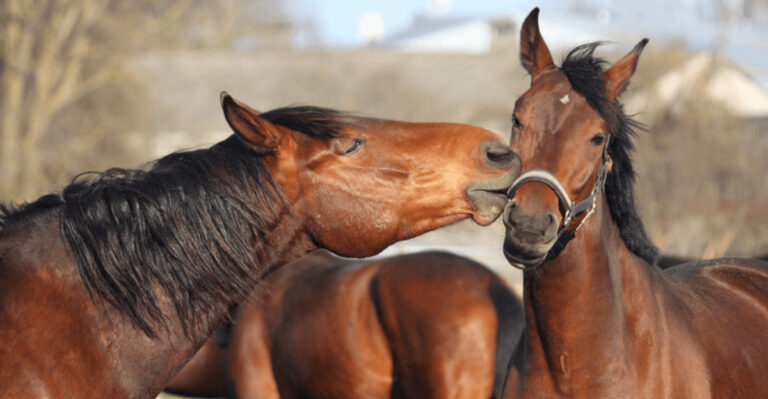9 Dog Breeds With The Biggest, Most Loving Hearts And 5 That Are Independent And Aloof
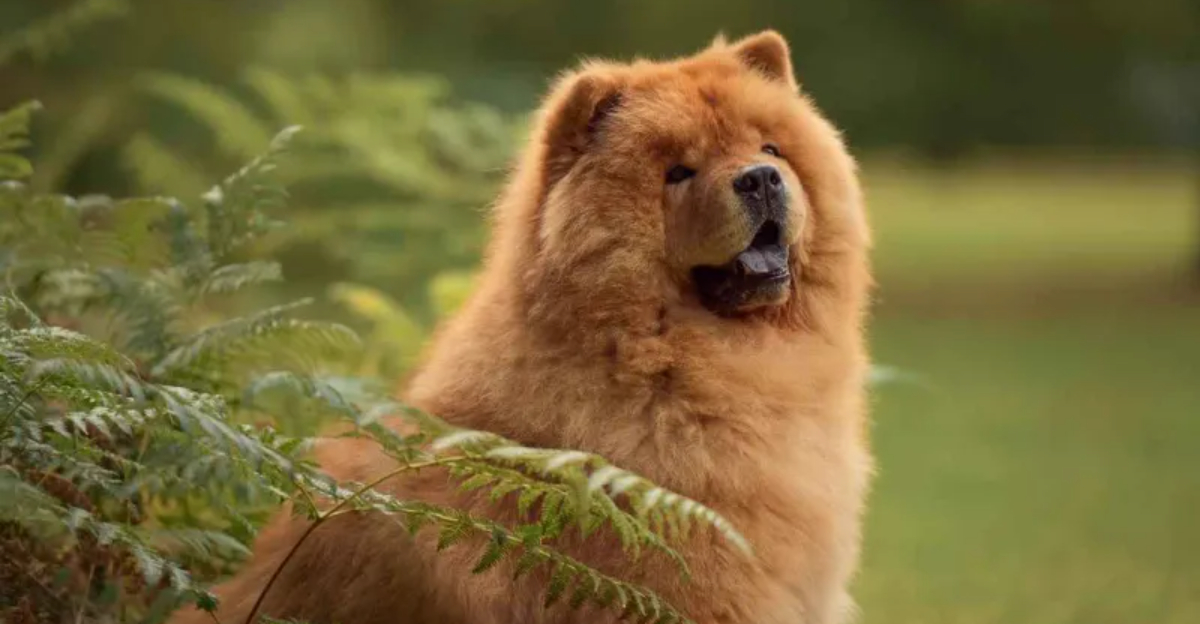
Dogs come in all shapes, sizes, and – most importantly – personalities! While some pups shower their owners with endless affection and can’t bear to be apart from their humans, others prefer their independence and might seem a bit standoffish.
Understanding these personality differences helps match the right dog with the right owner. Let’s explore nine dog breeds known for their enormous loving hearts, followed by five breeds that march to the beat of their own drum.
1. Golden Retrievers: The Sunshine Dogs
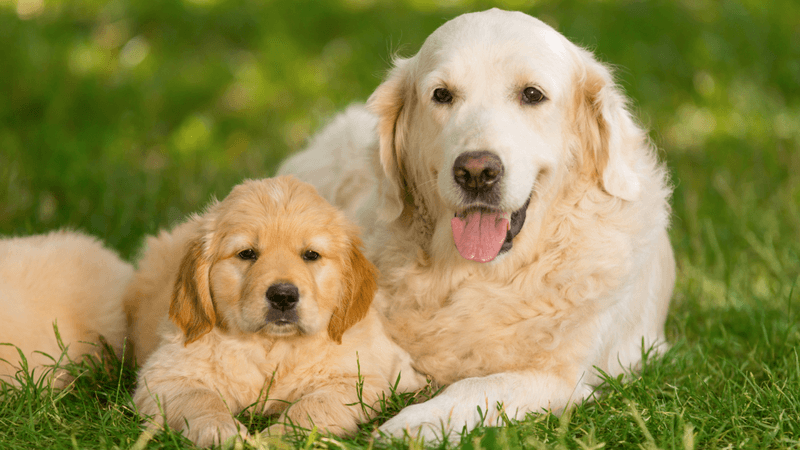
Wagging tails and goofy grins define these lovable blondes. Golden Retrievers simply adore people and consider everyone their best friend – whether they’ve known you for years or seconds. Their patience makes them fantastic family dogs, especially with children.
These dogs thrive on human connection and often develop what owners affectionately call “velcro dog syndrome,” following you from room to room just to be near you. Bred as hunting companions, their desire to please runs deep in their DNA.
A Golden will comfort you when you’re sad and celebrate when you’re happy – they’re remarkably tuned into human emotions.
2. Labrador Retrievers: America’s Faithful Companions
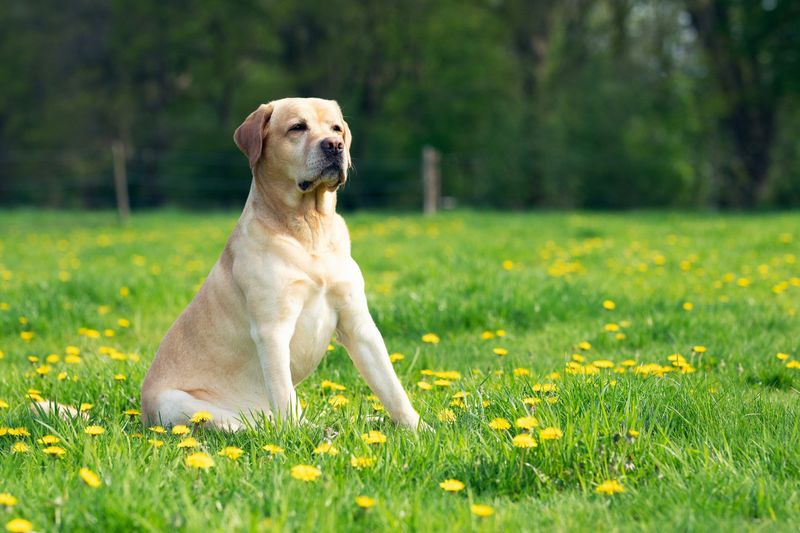
Consistently ranking as America’s most popular dog breed year after year, Labs have earned their reputation through unwavering loyalty and boundless affection. These athletic dogs combine playfulness with a steady temperament that makes them reliable companions.
Labs form deep bonds with their families and have an intuitive understanding of human needs. This natural empathy explains why they excel as service and therapy dogs.
Their expressive eyes seem to convey genuine concern when you’re troubled. Fun fact: Labs have what trainers call a “soft mouth” – they can carry eggs without breaking them!
3. Cavalier King Charles Spaniels: Lap Dogs With Royal Hearts

Bred specifically for companionship, these elegant little dogs were favorites among European nobility for centuries. Cavaliers combine the playfulness of a spaniel with the affectionate nature of a lap dog – creating the perfect balance of energy and cuddles.
Their soulful eyes melt hearts instantly, and they genuinely believe their purpose is to love you. Unlike some small breeds, Cavaliers typically get along beautifully with children and other pets.
These dogs take “emotional support” to new levels – they’ll curl up beside you during illness and seem to understand when you need extra affection. Their sensitivity to human emotions is almost uncanny.
4. Pit Bulls: Misunderstood Softies
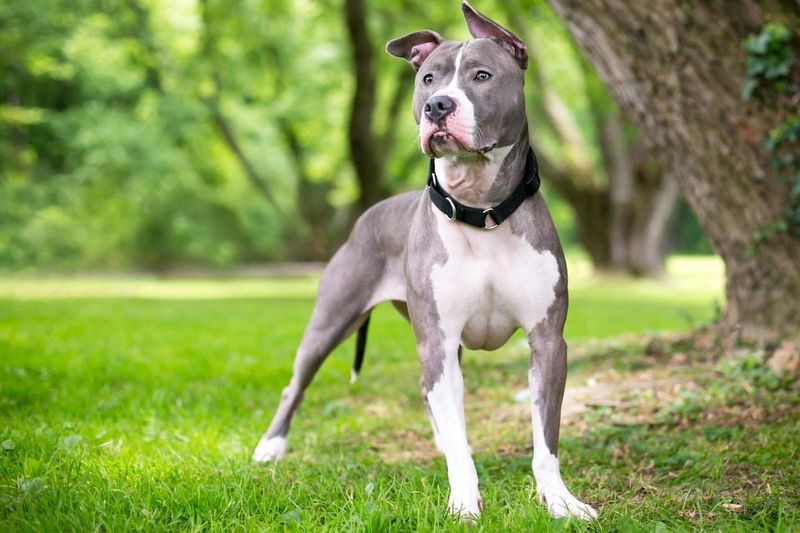
Behind those muscular frames beat some of the most loving hearts in the dog world. Pit Bulls were once known as “nanny dogs” because of their protective, gentle nature with children. Their eagerness to please makes them incredibly responsive to positive training.
These dogs form intensely loyal bonds with their families and often show their affection through full-body wiggles and enthusiastic face licks. Many Pit Bull owners describe their pups as “clingy” in the best possible way – they want to be where you are, doing what you’re doing.
Despite media stereotypes, properly raised Pit Bulls rank among the most loving, people-oriented breeds.
5. Newfoundlands: Gentle Giants With Heroic Hearts
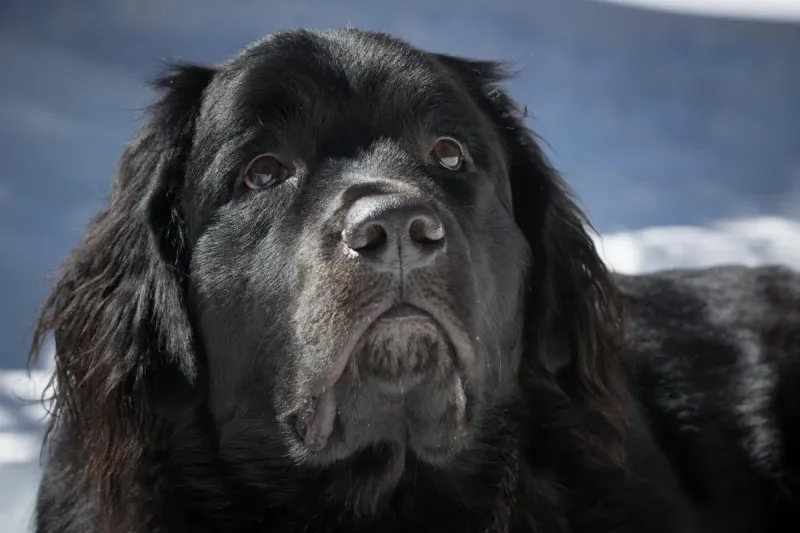
Nicknamed “nanny dogs” like Pit Bulls, these massive 150-pound furballs are famous for their extraordinary patience and protective instincts toward children. Newfoundlands possess a natural lifeguarding ability – they’ve been known to rescue drowning people without any training!
Their calm demeanor hides an intensely devoted nature. A Newfie will position itself between family members and perceived threats, though they rarely show aggression.
Instead, they prefer to use their substantial size as a gentle barrier. Despite their drooling habits, Newfoundland owners insist the slobber is a small price to pay for a dog with such a magnificent heart.
6. Boxers: The Clowns With Devoted Hearts
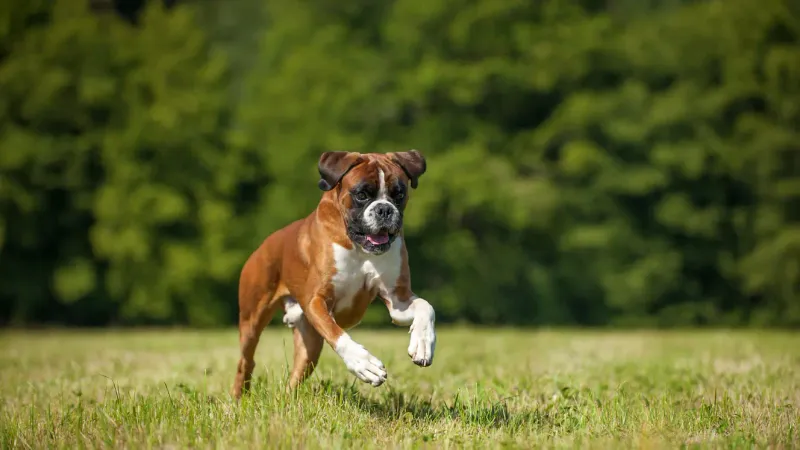
Perpetual puppies at heart, Boxers combine playfulness with fierce loyalty. Their expressive faces – complete with wrinkled foreheads and soulful eyes – telegraph their emotions clearly.
When a Boxer loves you, they show it with their entire body through what owners call the “kidney bean dance.” These medium-sized athletes need plenty of exercise, but what they want most is to be with their people.
Separation anxiety can be common because they form such intense bonds with their families. Originally bred as guard dogs, Boxers maintain a protective streak while being extraordinarily gentle with family members. Their playful antics continue well into adulthood.
7. Beagles: The Merry Little Hounds
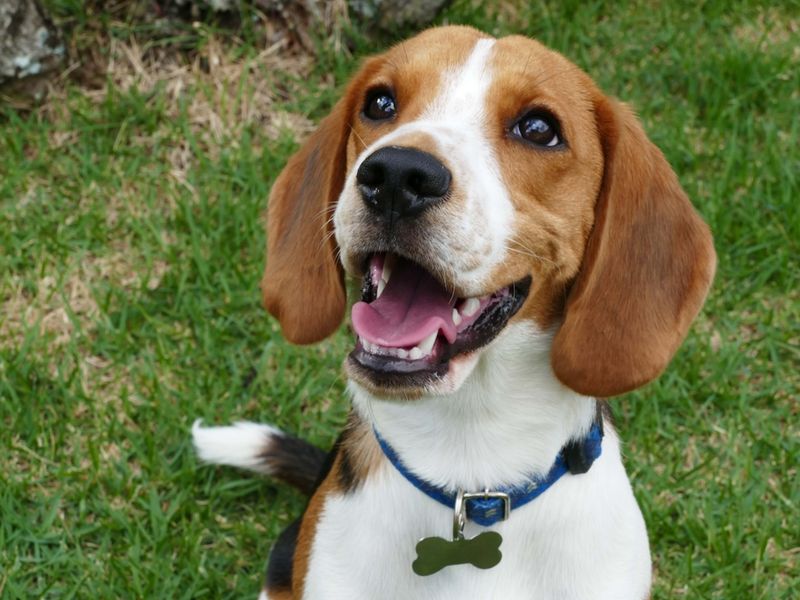
Charlie Brown’s faithful companion Snoopy represents this breed perfectly – friendly, curious, and always ready for adventure. Beagles were bred to hunt in packs, which makes them naturally sociable and eager for companionship.
Their expressive eyes and floppy ears give them an endearing, perpetually youthful appearance. These compact hounds form strong bonds with their families and generally get along with everyone – including other pets.
Their happy-go-lucky attitude is infectious, though their notorious nose can sometimes lead them astray on walks! Beagles communicate their feelings through a range of vocalizations from baying to what owners describe as “talking” – making them entertaining companions.
8. Bichon Frises: Little Cotton Balls Of Love
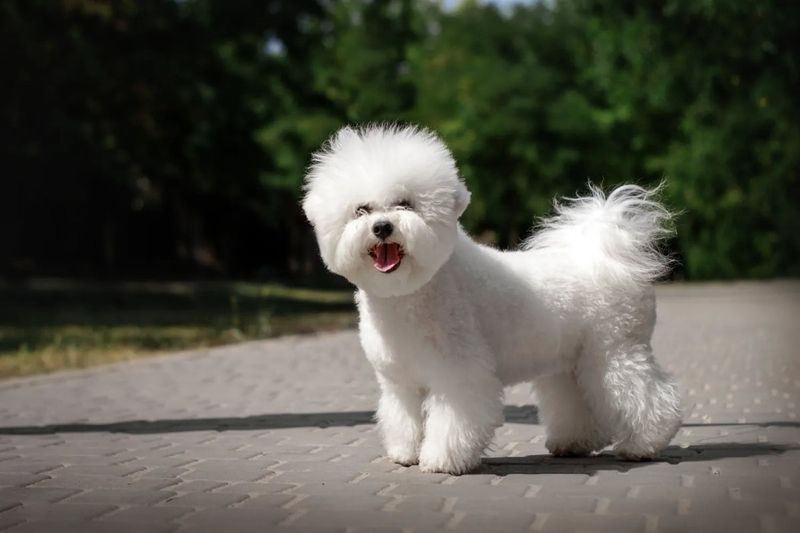
These fluffy white charmers were bred specifically to be companion animals, and they excel at their job! Bichons have a history as circus performers and ship mascots, developing an uncanny ability to read human emotions and respond accordingly.
Their cheerful temperament rarely wavers, and they seem genuinely interested in making their humans happy. Unlike some small breeds, Bichons typically don’t choose just one person – they spread their affection generously throughout the family.
These dogs have an almost magical ability to sense when you’re feeling down and will perform their silly antics until they coax a smile from you.
9. Poodles: The Brainy Love Bugs
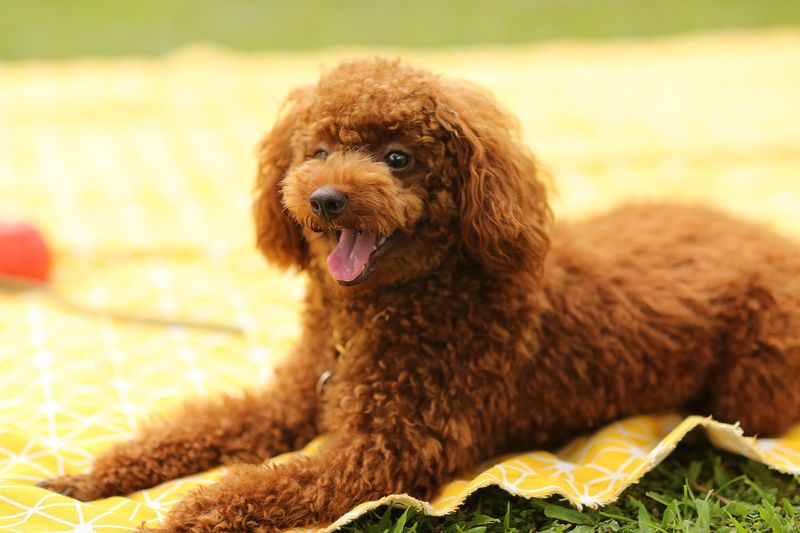
Don’t let the fancy haircuts fool you – beneath that sophisticated exterior beats the heart of a deeply devoted companion. Poodles rank among the most intelligent dog breeds, using their smarts to understand and respond to their owners’ needs with remarkable precision.
Available in three sizes (standard, miniature, and toy), all Poodles share the same loyal, people-oriented temperament. They form particularly strong bonds with their primary caregiver but spread affection throughout the household.
Their sensitive nature means they pick up on subtle emotional cues – many Poodle owners report their dogs offering comfort during difficult times without any training.
10. Chow Chows: The Dignified Loners
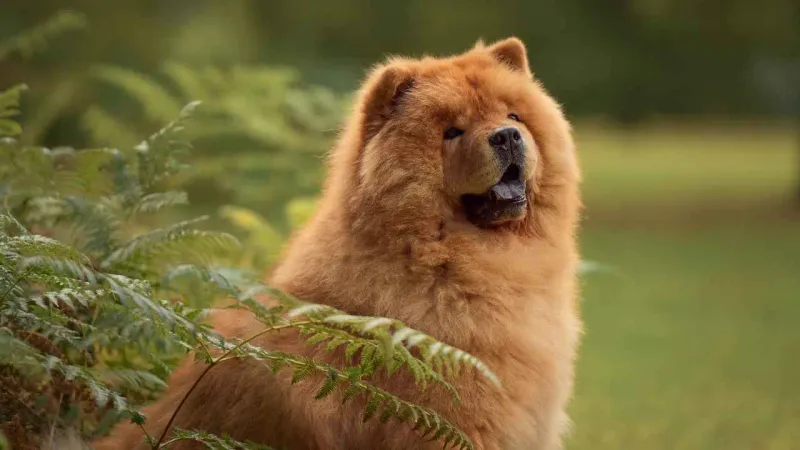
Moving to our independent breeds, Chow Chows embody the feline-like quality some dogs possess. With their distinctive lion’s mane and blue-black tongues, these ancient Chinese dogs maintain a dignified reserve that can seem aloof to strangers.
Chows typically bond deeply with one person while remaining indifferent to others. They don’t seek constant affection or reassurance and often prefer observing household activities from a comfortable distance rather than participating.
These dogs aren’t unfriendly – they simply value their personal space and independence. A Chow’s loyalty runs deep, but they express it through quiet presence rather than exuberant displays.
11. Afghan Hounds: The Elegant Aristocrats
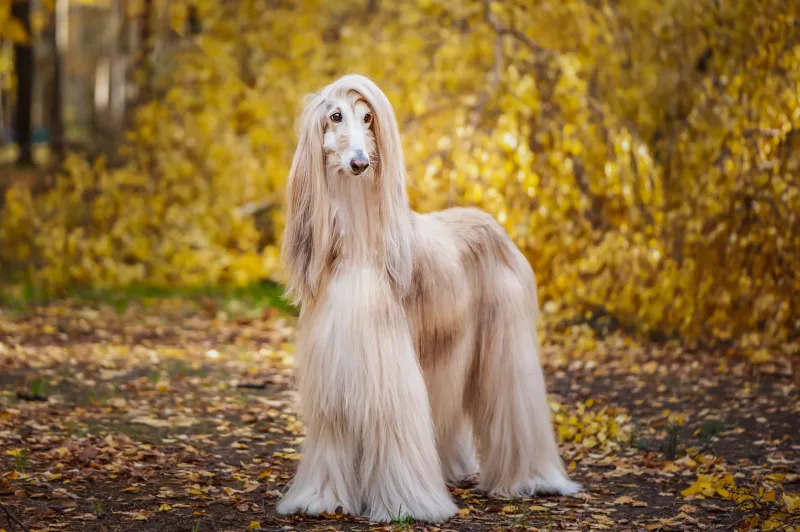
Often described as “cat-like” in temperament, Afghan Hounds carry themselves with a regal aloofness that can make them seem detached. Their stunning flowing coats and graceful appearance reflect their independent nature – they were bred to hunt independently without constant human direction.
Afghans form bonds with their owners but aren’t typically demonstrative with their affection. They prefer relating to humans on their own terms and may seem indifferent to attempts to engage them when they’re not in the mood.
These sighthounds possess a strong prey drive and independent thinking that can sometimes be mistaken for stubbornness. Their reserved nature extends to strangers, whom they typically regard with polite disinterest.
12. Shiba Inus: The Canine Cats
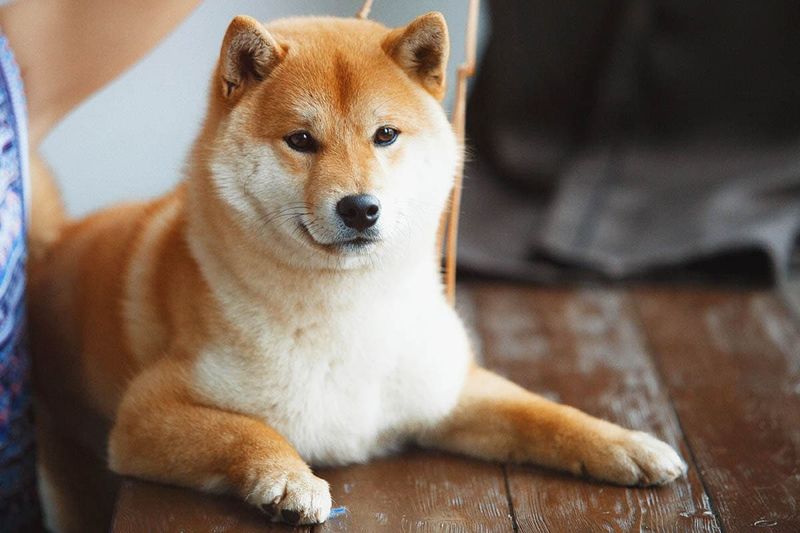
Internet-famous for their “Shiba scream” and fox-like appearance, these Japanese dogs epitomize independent thinking. Shibas maintain a healthy emotional distance even from their beloved owners, preferring to interact on their own terms and timeline.
Clean by nature, Shibas often groom themselves like cats and value their personal space. They typically bond with their families but maintain an independent streak that can surprise first-time owners expecting a more traditionally affectionate dog.
These intelligent dogs aren’t unfriendly – they simply have strong opinions about when and how they want attention. Many Shiba owners describe living with them as more like having a roommate than a pet.
13. Basenji: The Barkless Independents
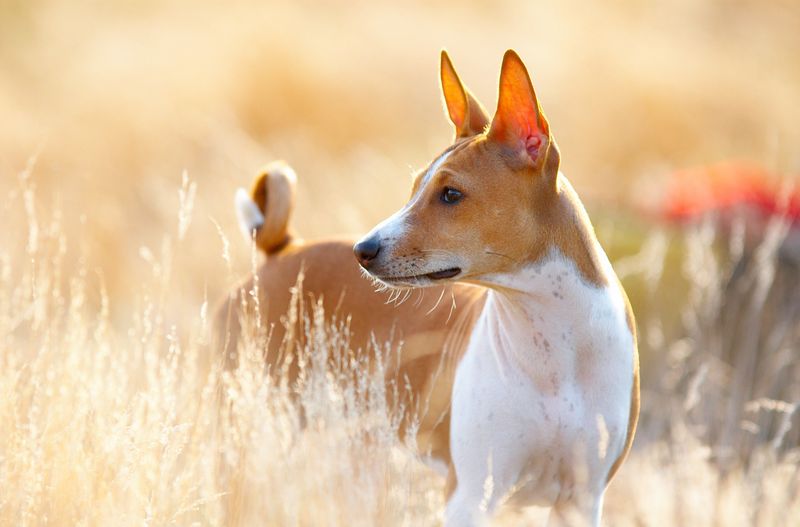
Known as “the barkless dog,” Basenjis communicate through an unusual yodel-like sound when they choose to vocalize at all. These ancient African hunting dogs maintain the independent spirit that allowed them to hunt without constant human direction.
Basenjis clean themselves like cats and possess a similar self-sufficient attitude. While they form bonds with their families, they don’t typically seek constant reassurance or physical affection. Their curious, mischievous nature means they’re often busy exploring rather than cuddling.
These dogs challenge the notion that all canines live to please humans – Basenjis do what makes sense to Basenjis, often with a mischievous twinkle in their eye.
14. Akitas: The Noble Guardians
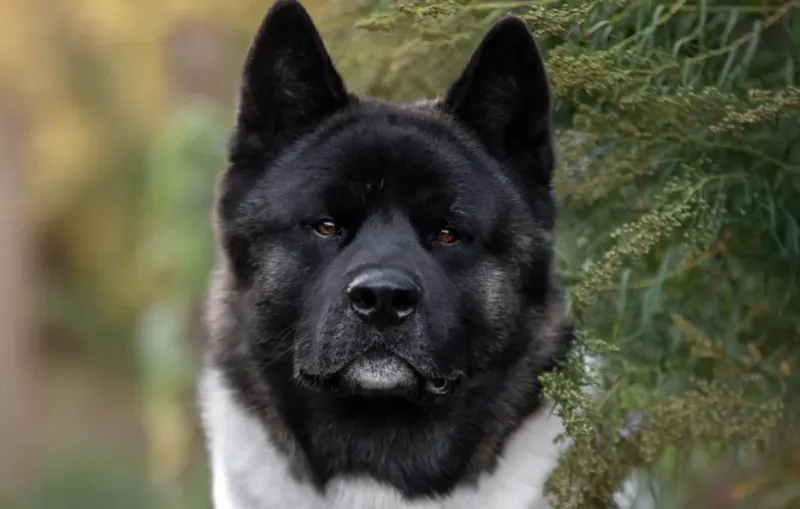
Memorialized in the heartwarming story of Hachiko, Akitas demonstrate profound loyalty to their chosen people while maintaining an independent, somewhat aloof demeanor with everyone else.
These powerful Japanese dogs were bred to hunt bears and guard royalty – responsibilities requiring independent judgment. Akitas typically bond deeply with family members but express their devotion through protective presence rather than demonstrative affection.
They’re not typically cuddly dogs and often prefer to monitor household activities from a comfortable distance. Their dignified reserve extends to strangers, whom they generally regard with polite suspicion. Akitas make their own decisions about who deserves their trust and affection.


